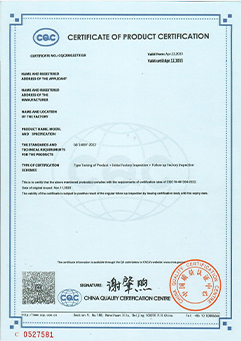Understanding Fuel Injector Return Pipe Functions and Importance in Engine Performance
Дек . 10, 2024 04:13 Back to list
Understanding Fuel Injector Return Pipe Functions and Importance in Engine Performance
Understanding the Fuel Injector Return Pipe Function and Importance
In modern internal combustion engines, fuel delivery systems play a crucial role in ensuring optimal performance, efficiency, and emissions control. One critical component of this system is the fuel injector return pipe, which is often overlooked in discussions about engine performance. In this article, we will delve into the function and importance of the fuel injector return pipe, examining how it contributes to the overall efficiency of the fuel injection system.
What is the Fuel Injector Return Pipe?
The fuel injector return pipe is a component of the fuel delivery system that serves to return excess fuel from the fuel injectors back to the fuel tank or fuel line. In a typical fuel injection system, fuel is pressurized and delivered directly to the injectors, where it is atomized and injected into the combustion chamber at specific intervals. However, not all the fuel delivered to the injectors is consumed; some of it may be left over after the injection event, especially in systems designed to keep the injectors primed and ready for the next cycle.
Function of the Fuel Injector Return Pipe
The primary function of the fuel injector return pipe is to channel this excess fuel back to the fuel tank. This process has several benefits
1. Maintaining Pressure By returning excess fuel, the return pipe helps maintain optimal pressure within the fuel rail. Consistent pressure is vital for proper fuel atomization during injection, which in turn affects combustion efficiency and engine performance.
2. Preventing Fuel Overheating Fuel that is not used immediately can become heated as it circulates through the fuel system. If left unchecked, this can lead to vapor lock, a condition where fuel vaporizes in the fuel line, preventing liquid fuel from reaching the injectors. The return pipe mitigates this risk by allowing excess fuel to flow back to the cooler environment of the fuel tank.
3. Improving Fuel Efficiency By recycling excess fuel, the return pipe ensures that the engine uses fuel more efficiently. Instead of wasting fuel or allowing it to sit idle in the fuel rails, the system effectively utilizes every drop of fuel delivered.
fuel injector return pipe

4. Extending Fuel Pump Life The fuel pump is designed to maintain pressure in the fuel system. By returning excess fuel, the return pipe reduces the workload on the pump, which can lead to a longer lifespan and consistent performance.
The Role in Emissions Control
In addition to its mechanical benefits, the fuel injector return pipe also plays a role in emissions control. Modern engines are equipped with sophisticated fuel management systems that are designed to minimize harmful emissions. The return pipe ensures that the air-fuel mixture is optimized, resulting in more complete combustion and lower emissions. Furthermore, by preventing fuel from boiling and creating vapor, the return pipe helps to reduce the chances of incomplete combustion, which can produce harmful pollutants.
Common Issues with Fuel Injector Return Pipes
Like any component in a vehicle's fuel system, the fuel injector return pipe can experience issues. Common problems include leaks, clogs, or damage to the pipe itself. A damaged return pipe can lead to fuel leaks, creating a fire hazard and reducing fuel efficiency. Clogs, on the other hand, can disrupt the flow of fuel, leading to inconsistent injector performance and rough engine operation.
Regular maintenance and inspection of the fuel system can help identify potential issues before they escalate. Mechanics often recommend replacing worn or damaged return pipes and ensuring that the entire fuel delivery system is in good working order to prevent problems down the line.
Conclusion
In summary, the fuel injector return pipe is a vital component of the fuel injection system that significantly impacts engine performance, efficiency, and emissions control. Understanding its function highlights the complexity of modern fuel systems and the importance of each component working together in harmony. For vehicle owners, recognizing the significance of the return pipe can lead to better maintenance practices, ultimately ensuring a more efficient and reliable engine.
